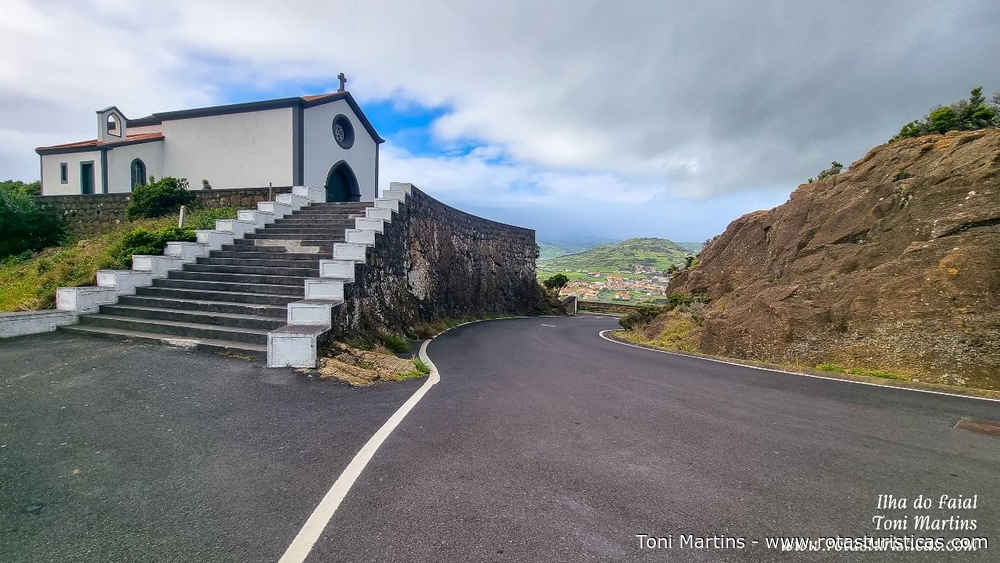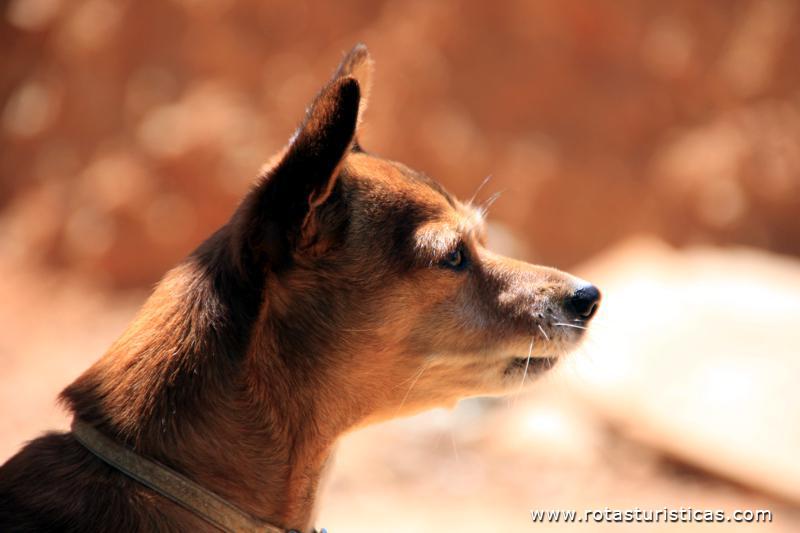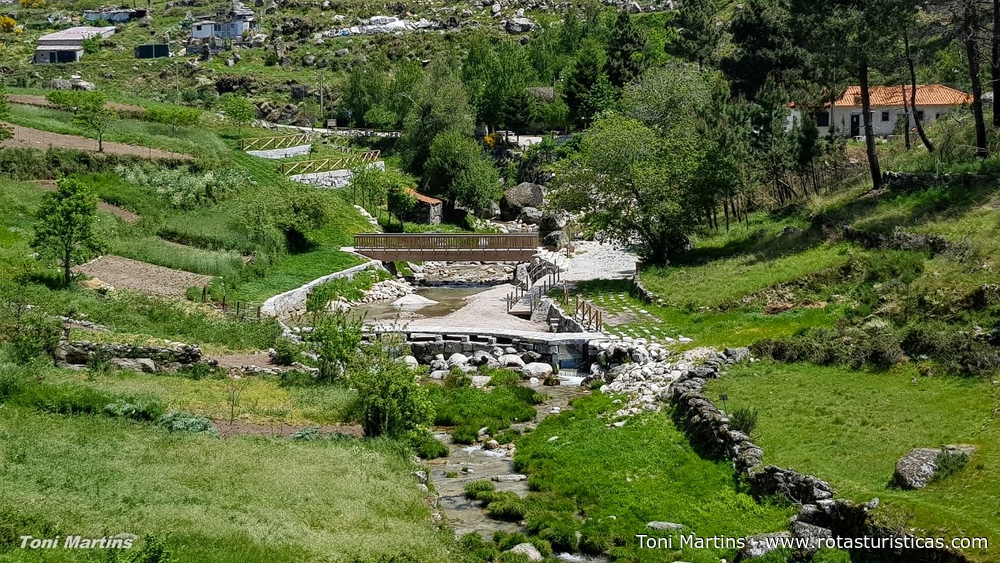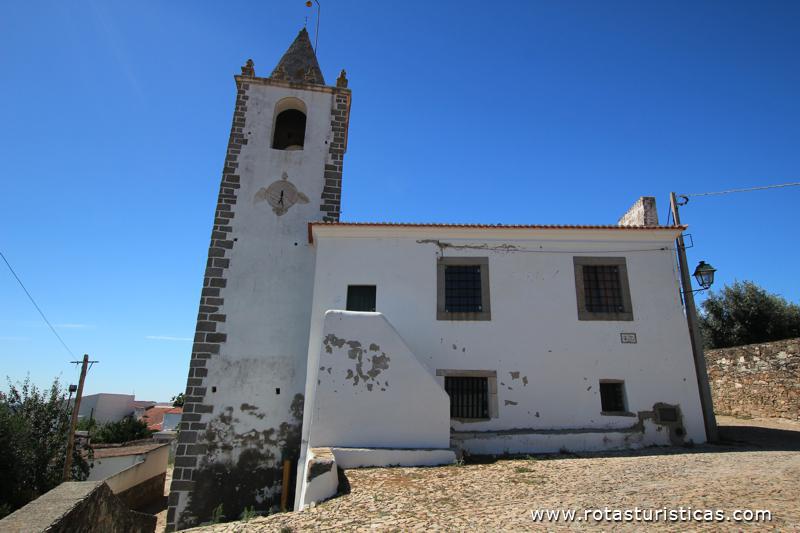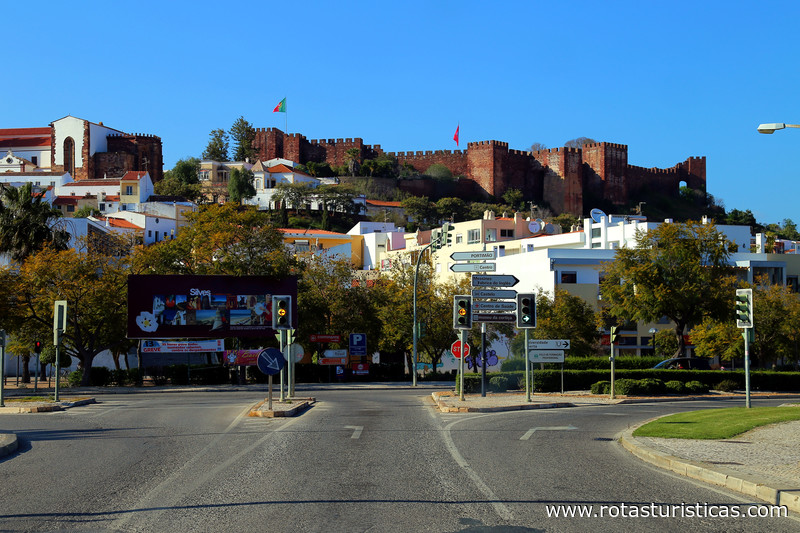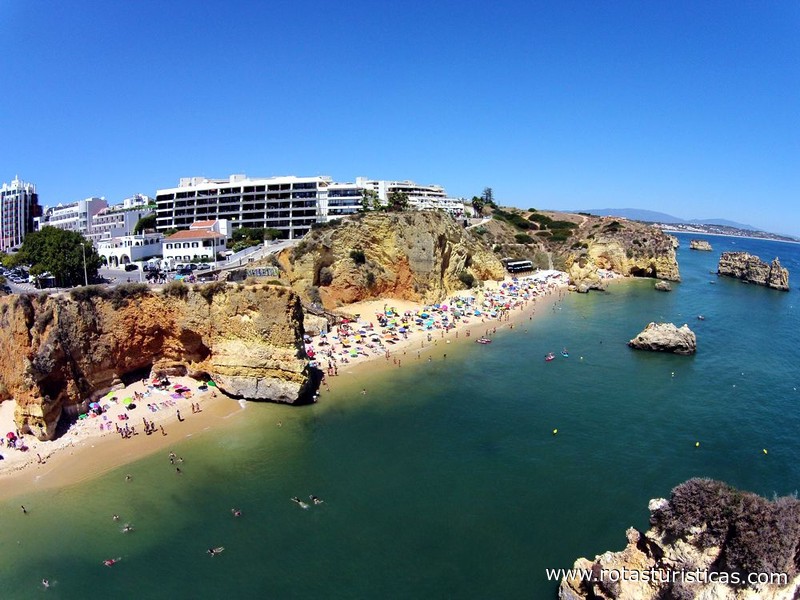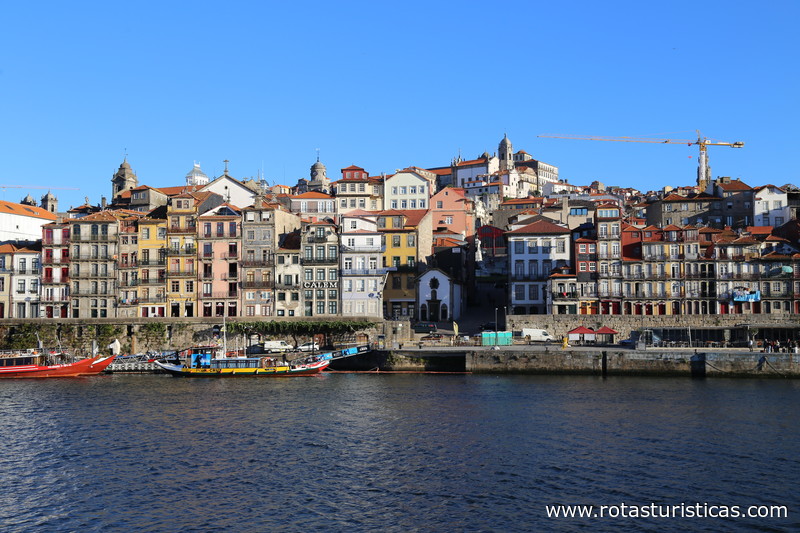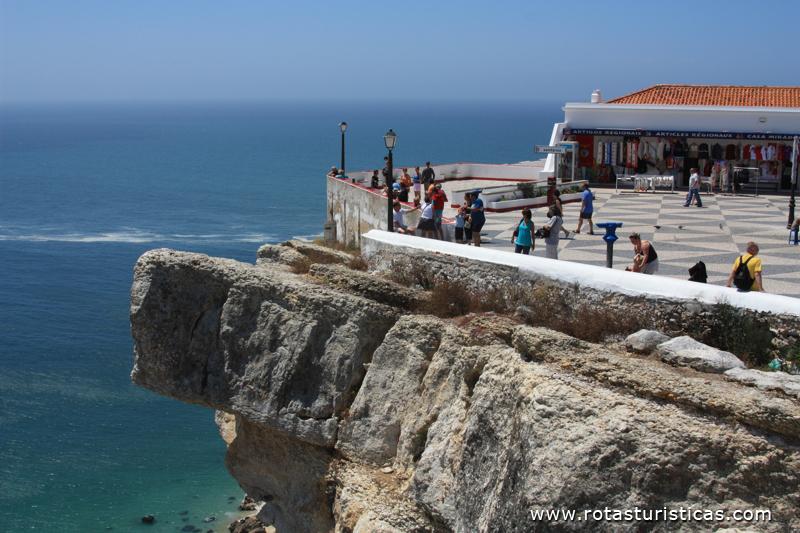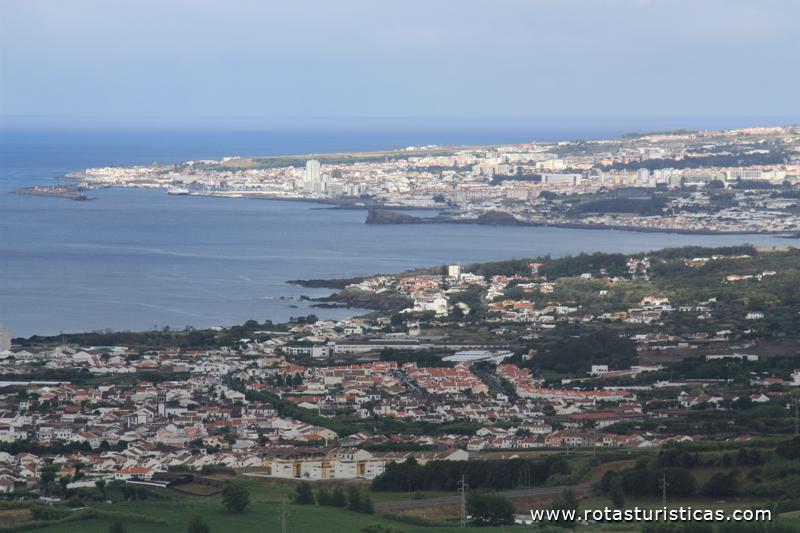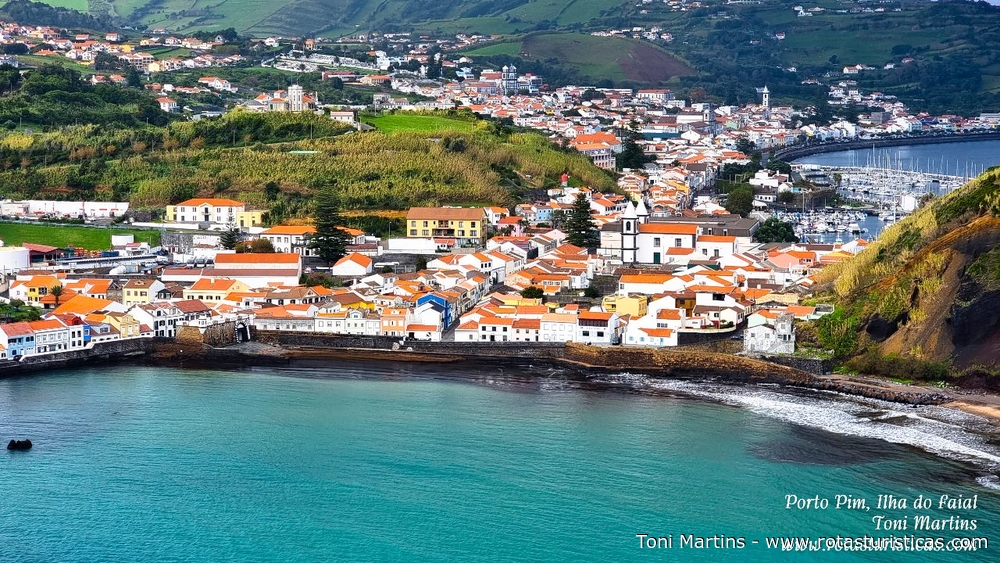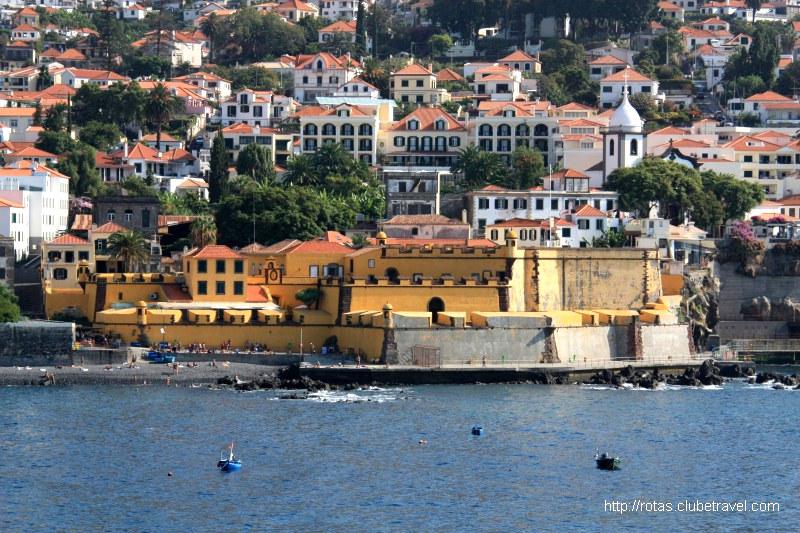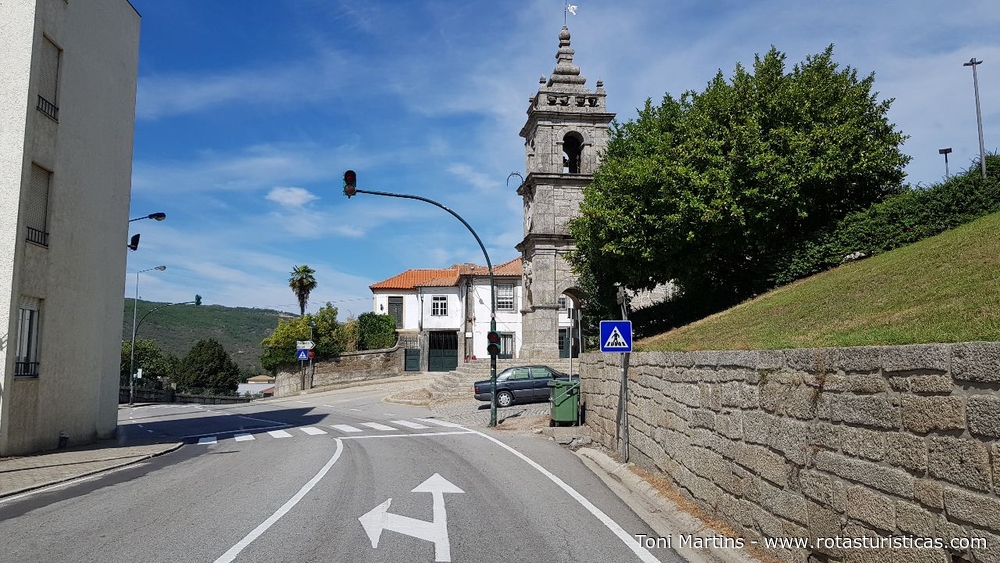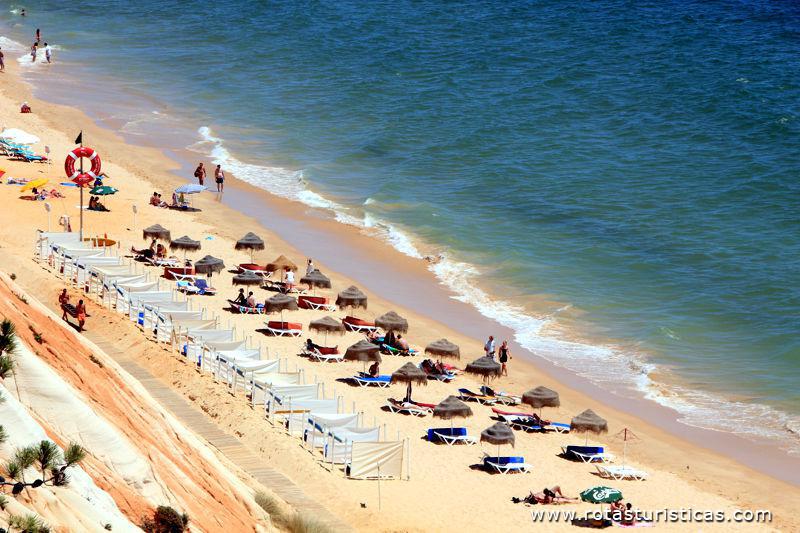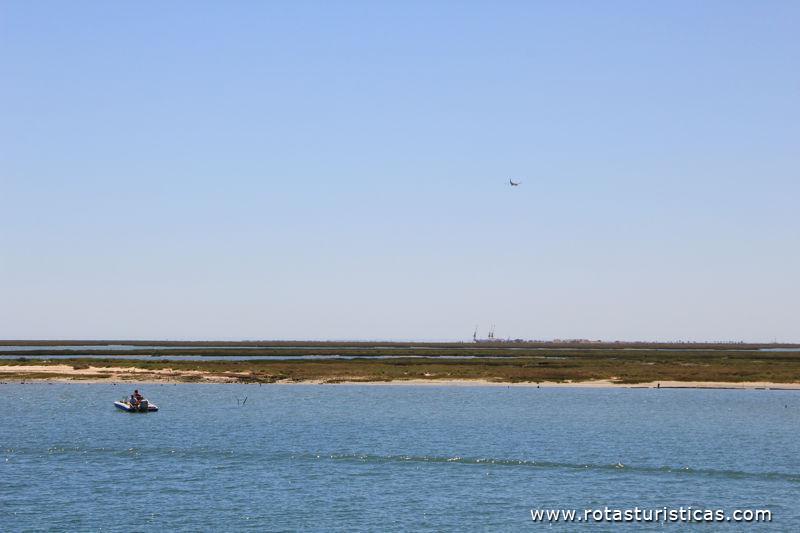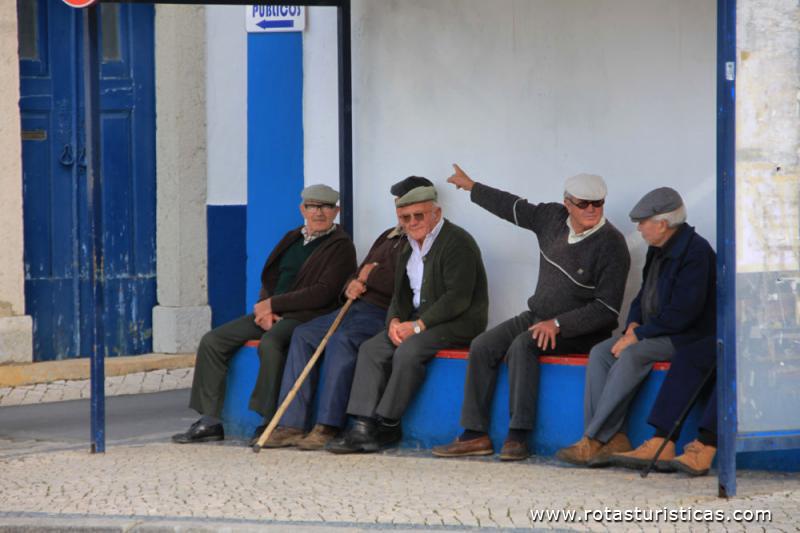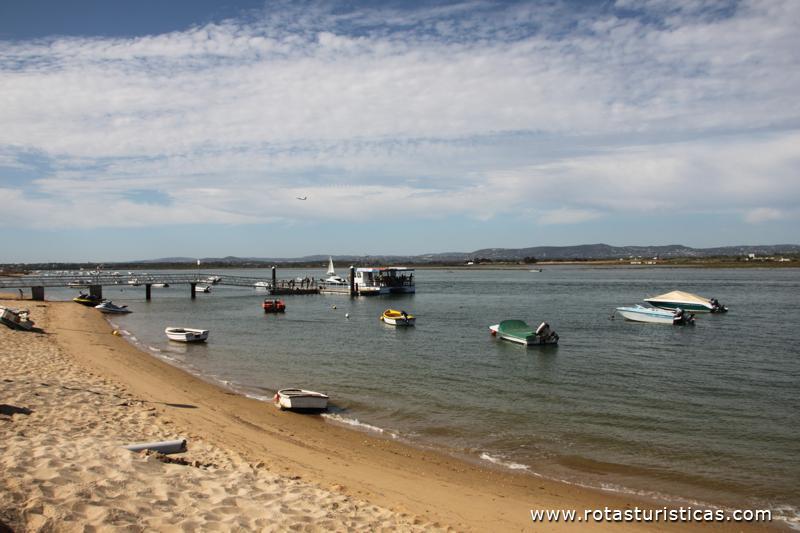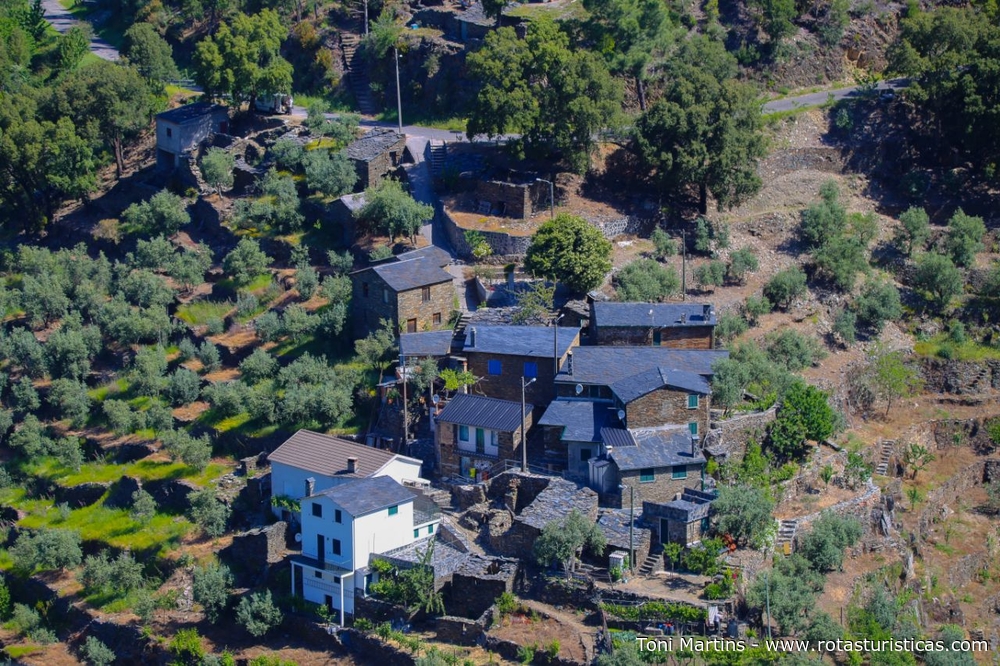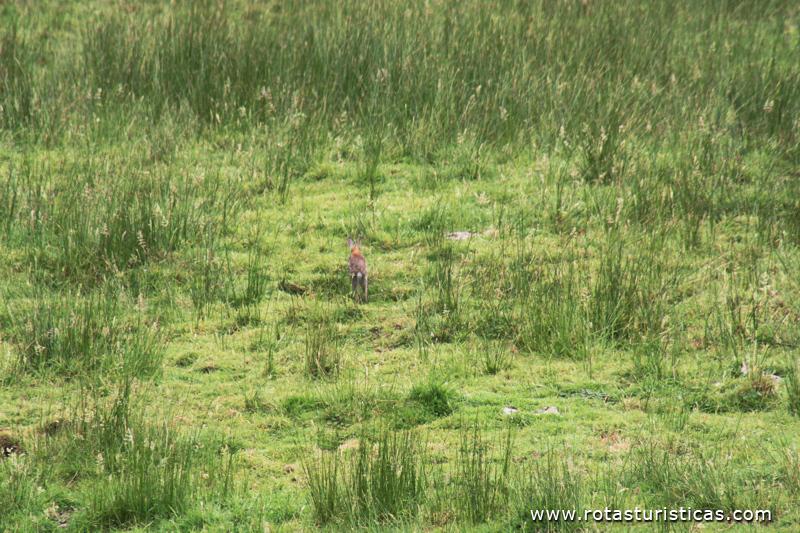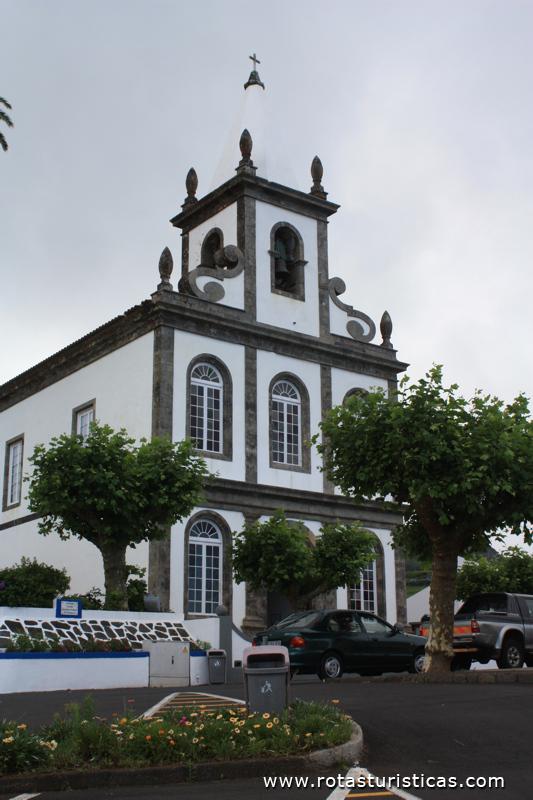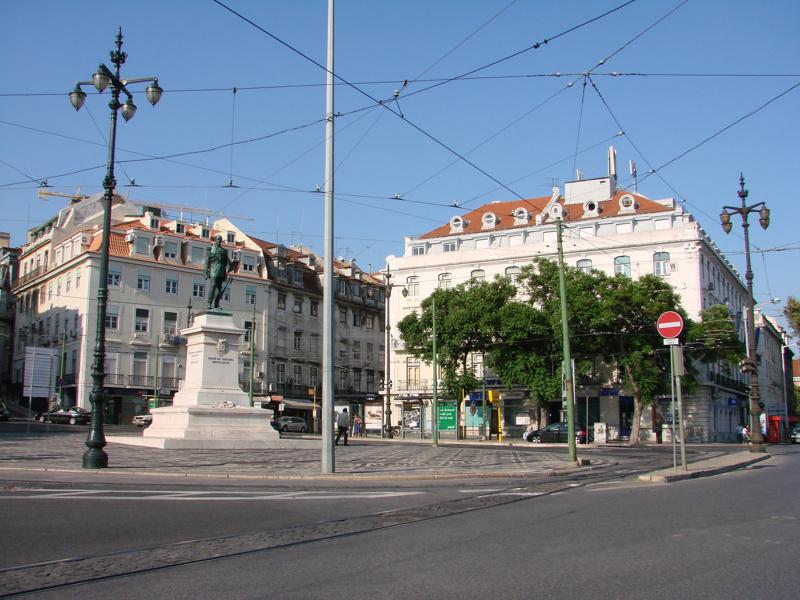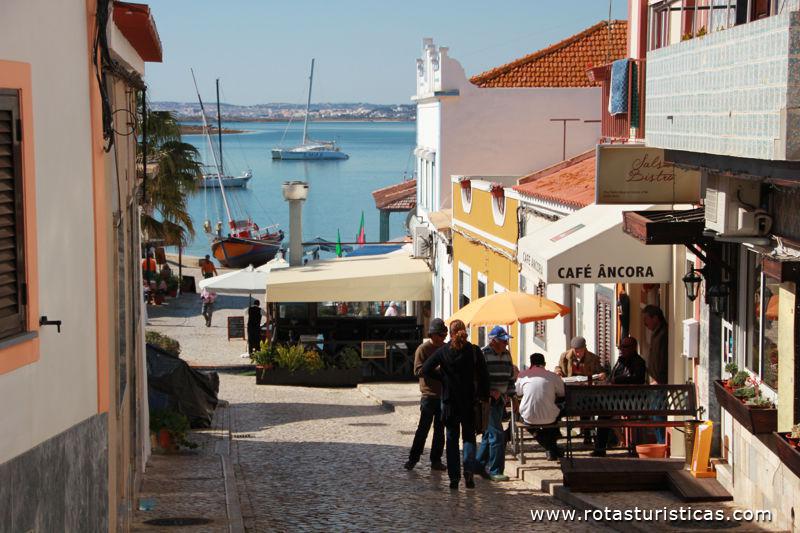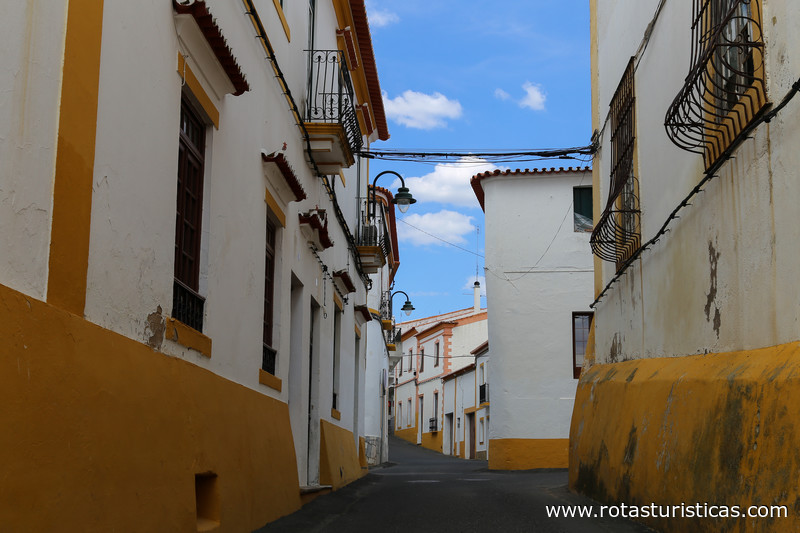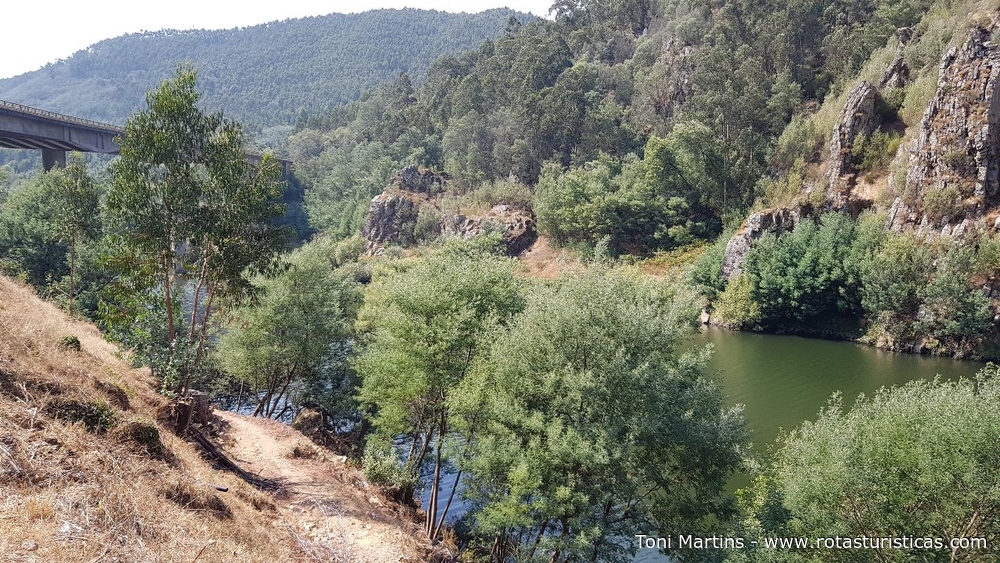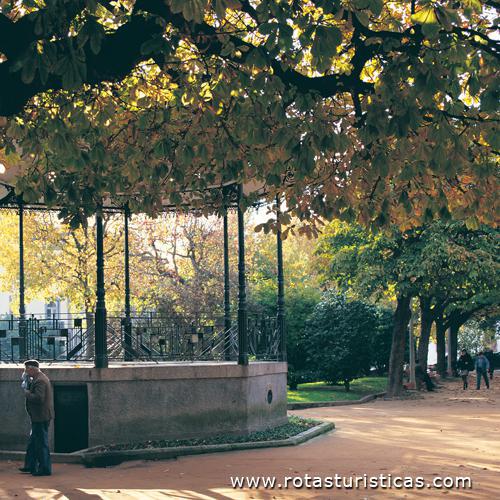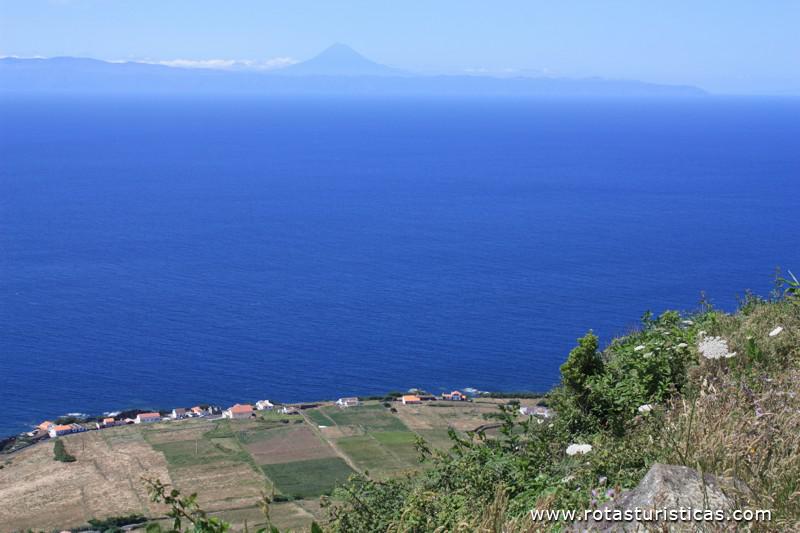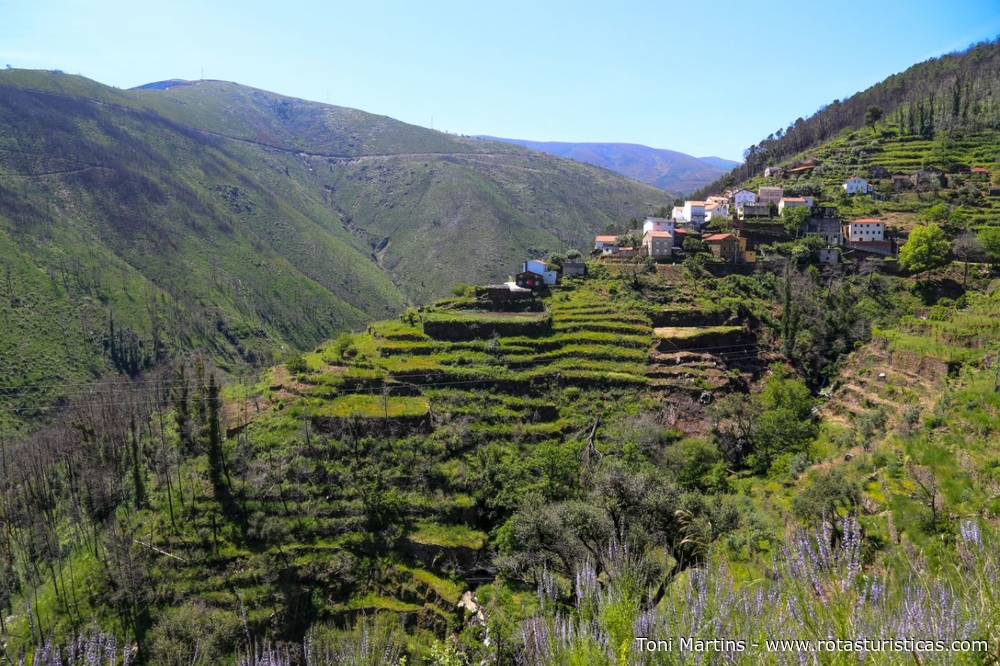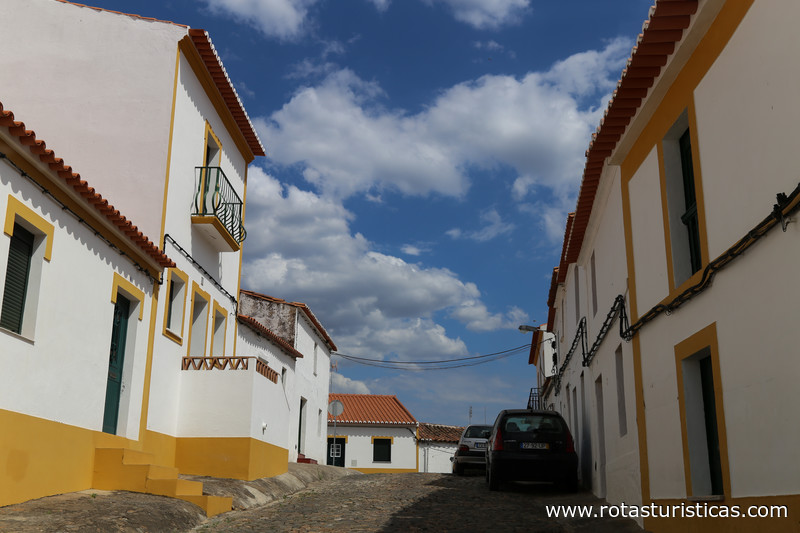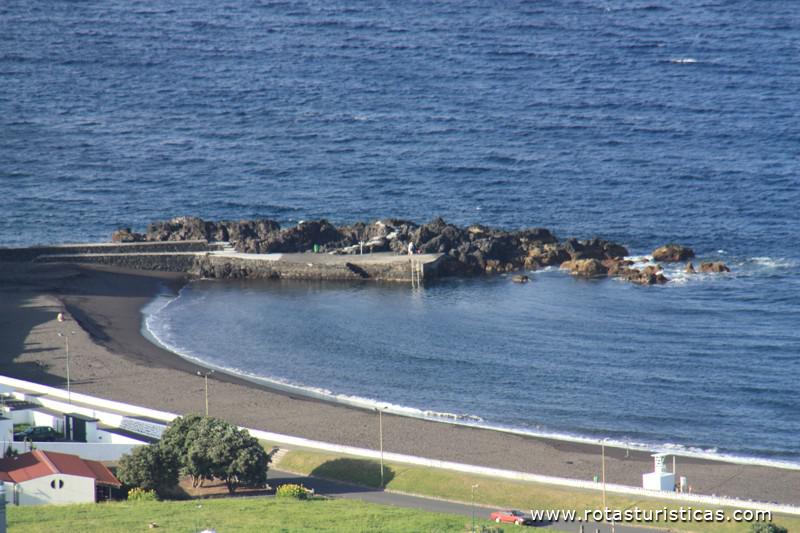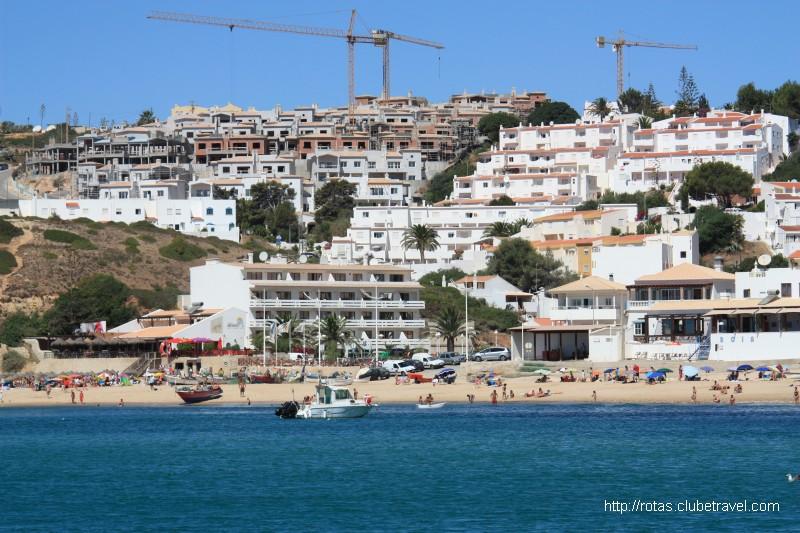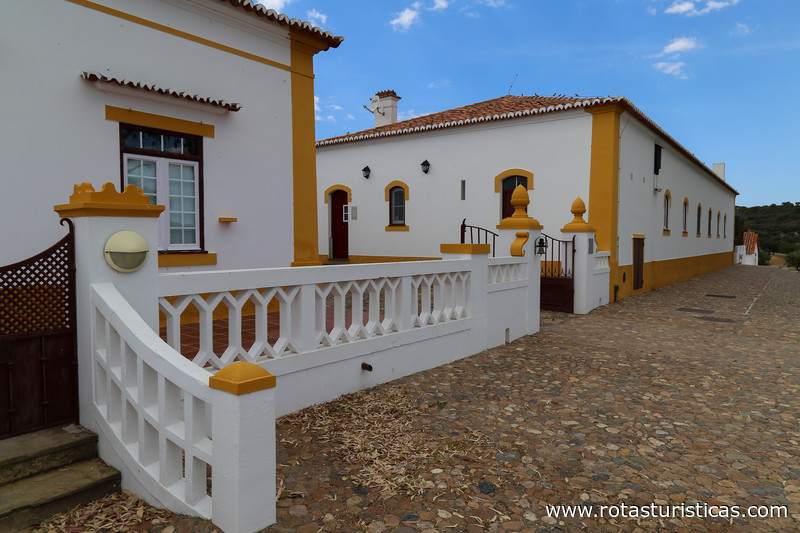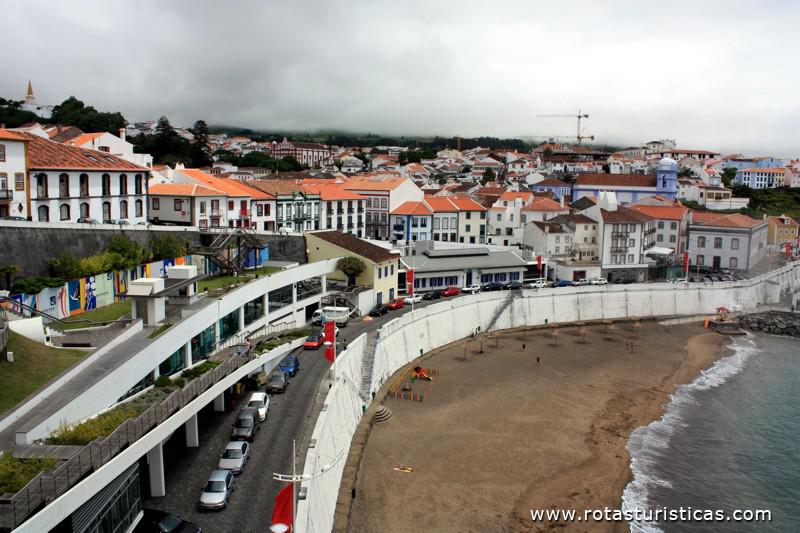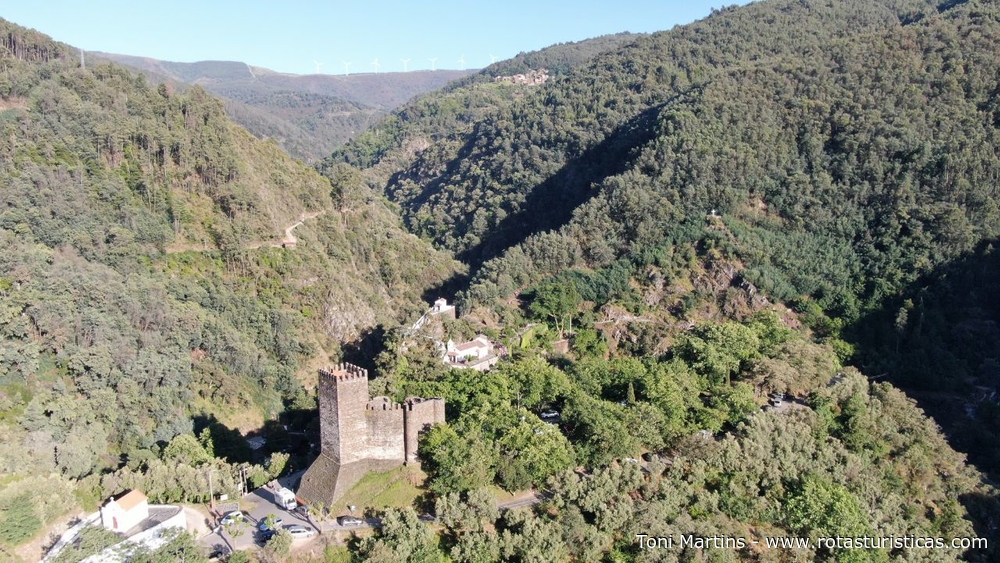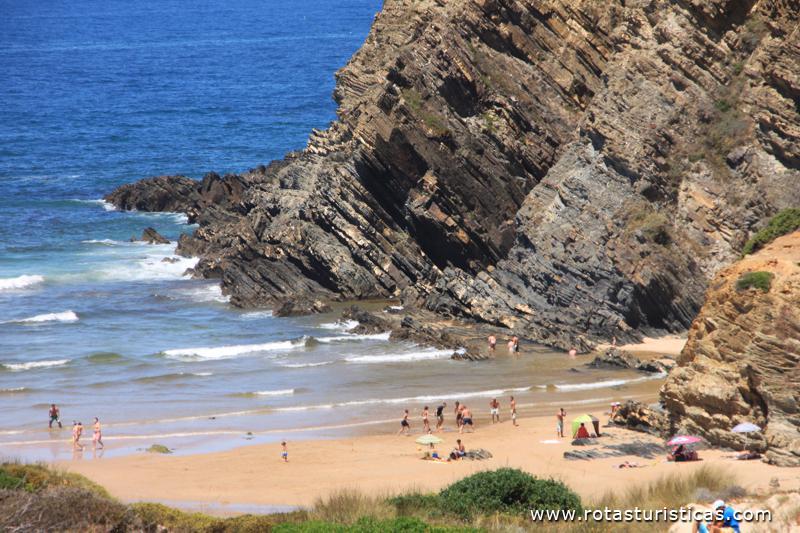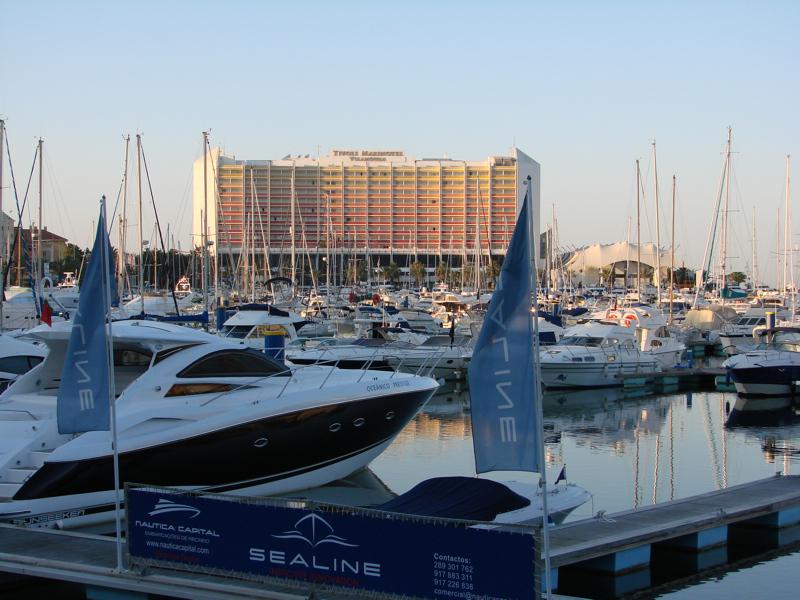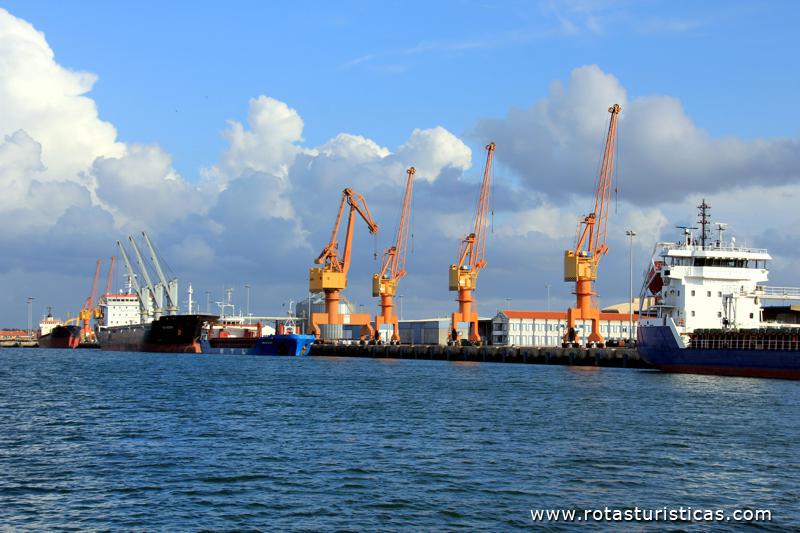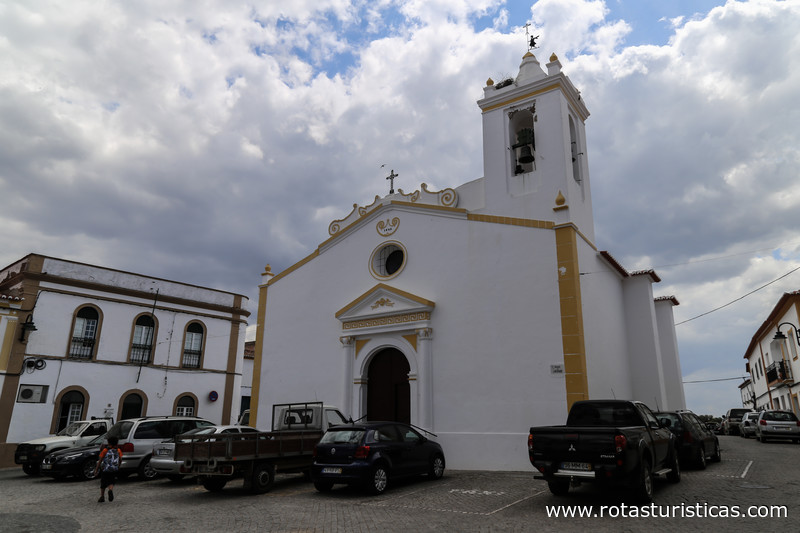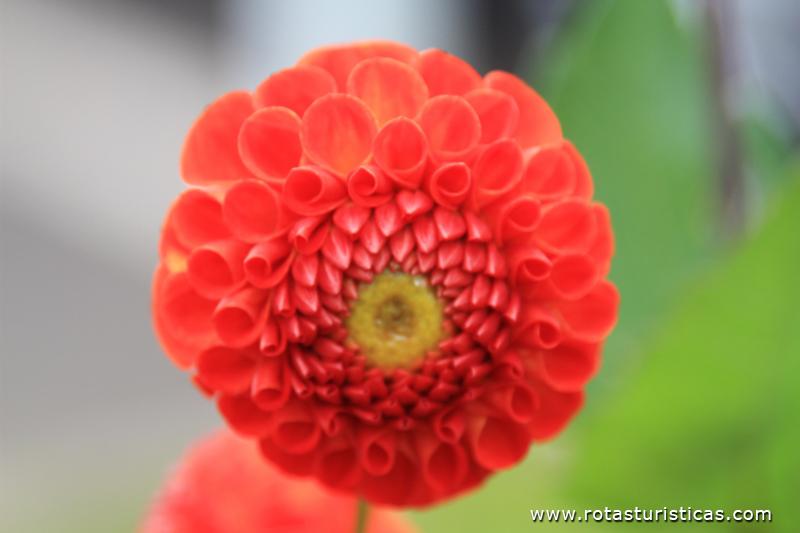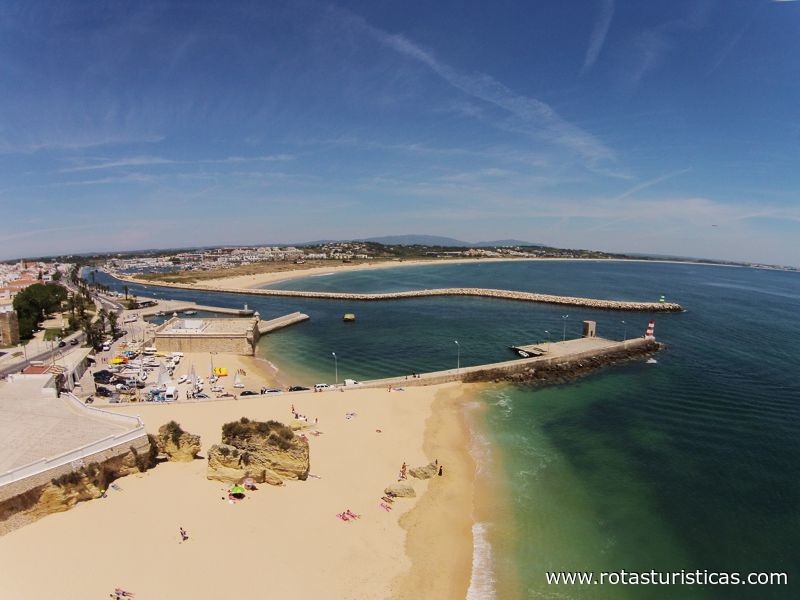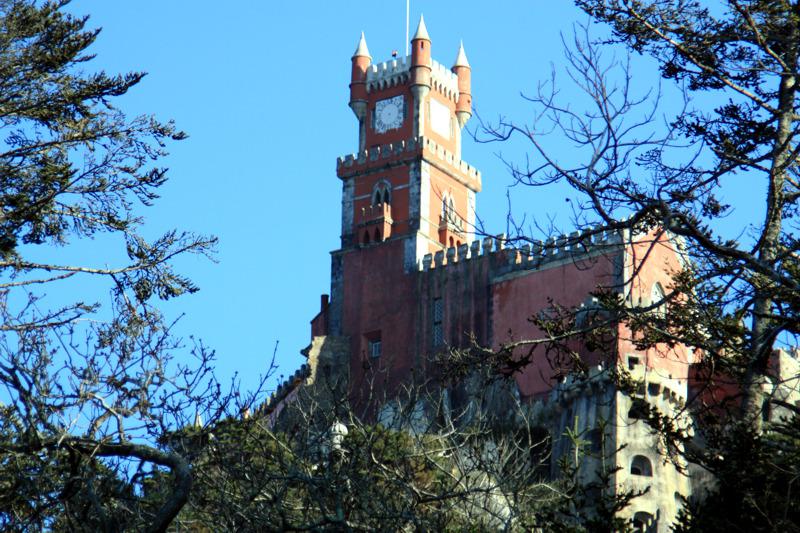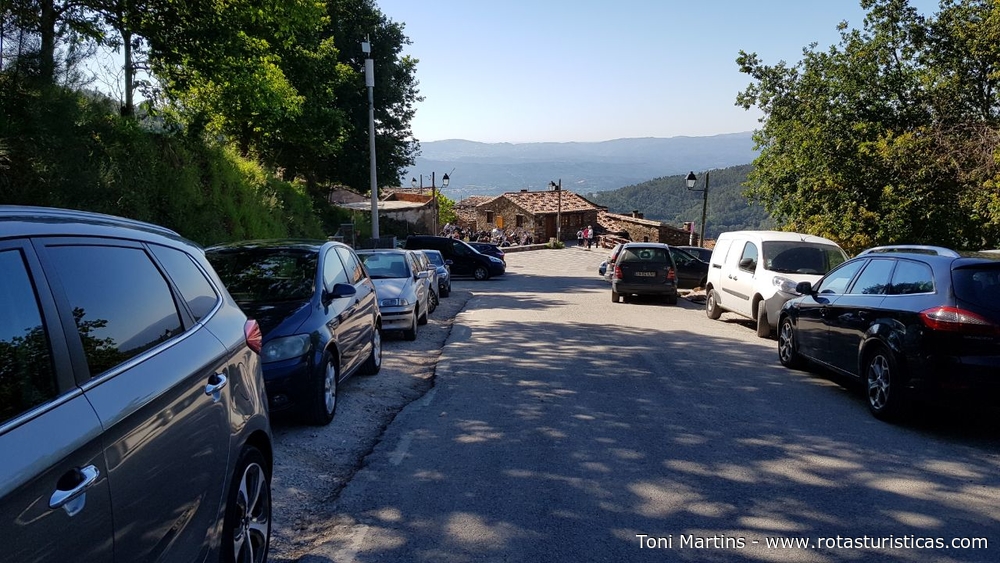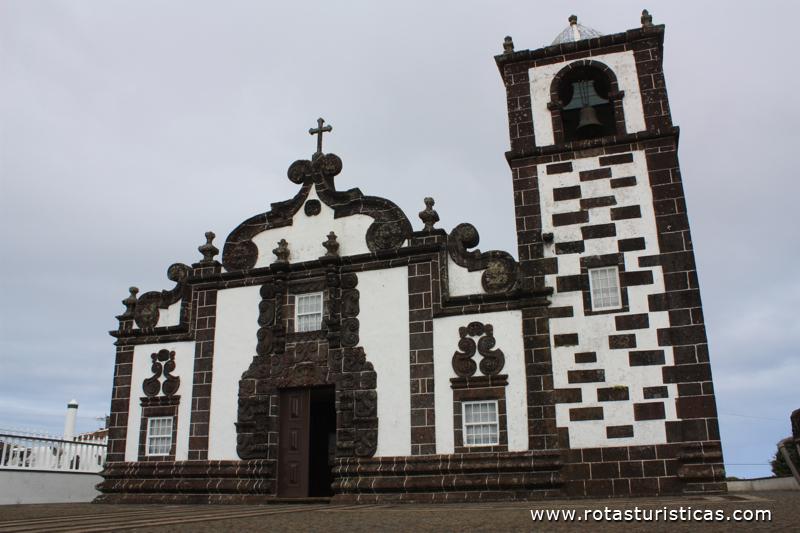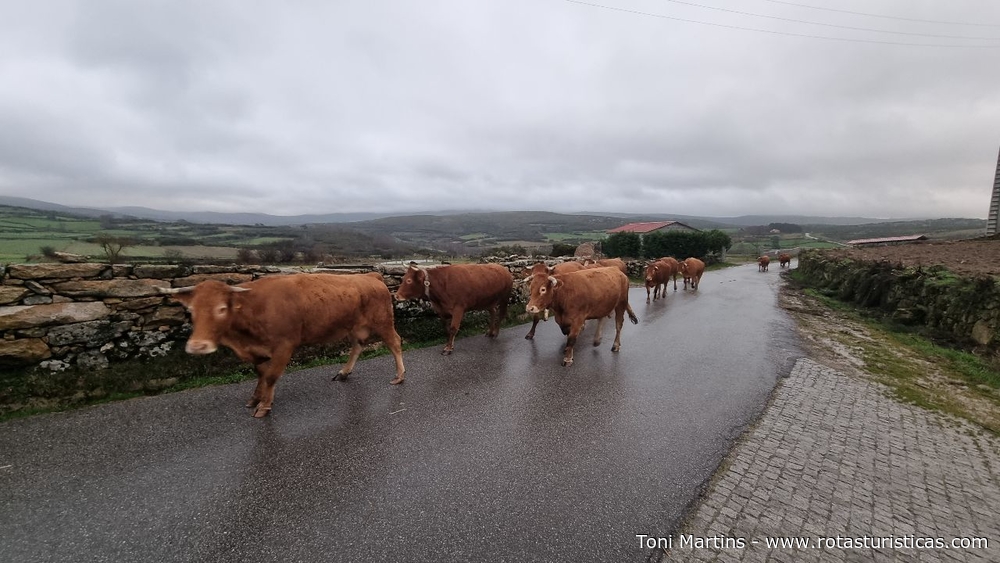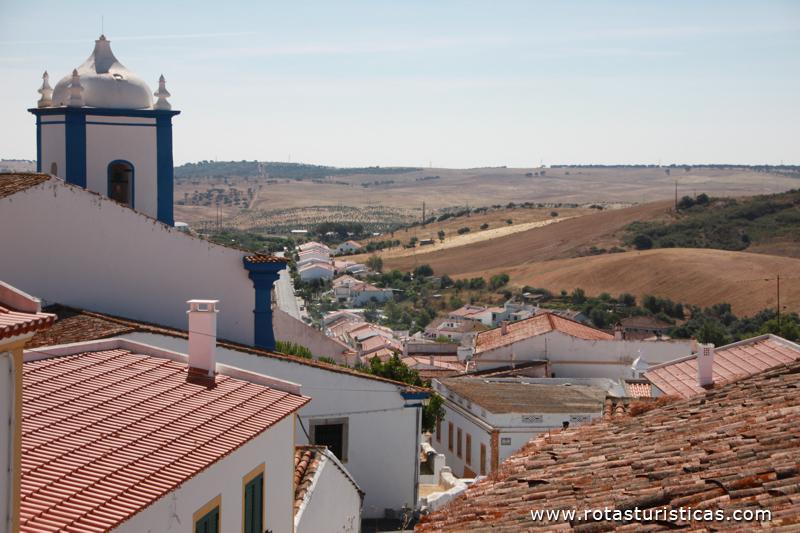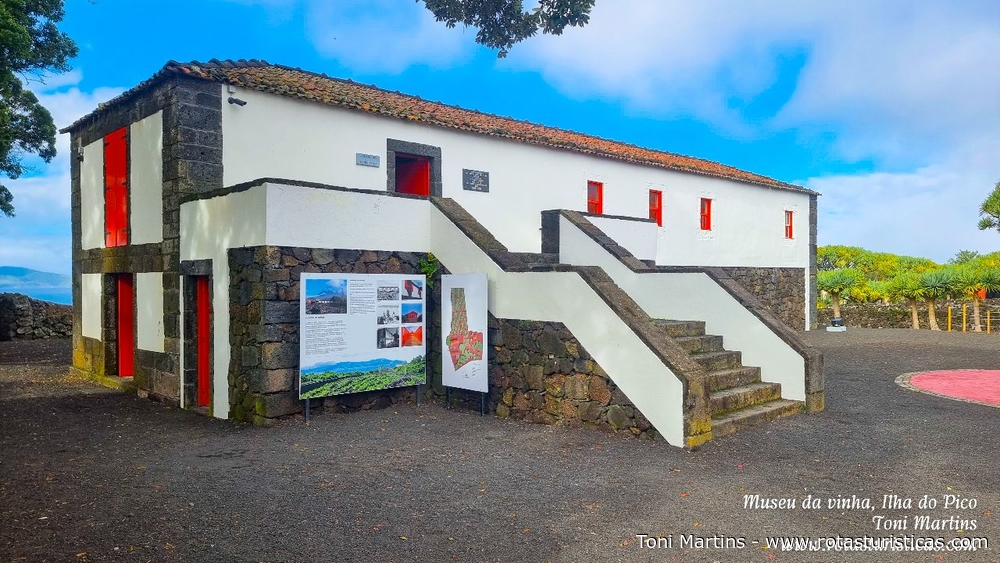Pictures of: Portugal
Location map
Airports
Hotels and other Accommodation
Golf Courses
What to visit
Where to Eat
Where to have fun
Consulates & Embassies
World Nomads
The Travel Insurance with the largest coverage

The Travel Insurance with the largest coverage

Portugal
Portugal, officially the Portuguese Republic, is a unitary sovereign country located in Southwest Europe, whose territory is located in the western part of the Iberian Peninsula and in archipelagos in the North Atlantic. The Portuguese territory has a total area of 92,090 km², being delimited to the north and east by Spain and to the south and west by the Atlantic Ocean, comprising a continental part and two autonomous regions: the archipelagos of the Azores and Madeira. Portugal is the westernmost nation on the European continent. The name of the country comes from its second largest city, Porto, whose Latin name was Portus Cale.
The territory within the current borders of the Portuguese Republic has been continuously populated since prehistoric times: occupied by Celts, like the Galicians and the Lusitanians, was integrated into the Roman Republic and later colonized by Germanic peoples, such as the Suevi and the Visigoths . In the 8th century the lands were conquered by the Moors. During the Christian Reconquest the Portucalense County was formed, first as part of the Kingdom of Galicia and later integrated into the Kingdom of Leon. With the establishment of the Kingdom of Portugal in 1139, whose independence was recognized in 1143. In 1297 the boundaries were defined in the treaty of Alcanizes, making Portugal the oldest nation-state in Europe. In the fifteenth and sixteenth centuries, as a result of pioneerism in the Age of Discoveries (Portugal: discoveries), Portugal expanded Western influence and established an empire that included possessions in Africa, Asia, Oceania and South America, making it the most important economic, political and military power in the world. The Portuguese Empire was the first global empire of history14 and also the most enduring of the European colonial empires, covering almost 600 years of existence, from the conquest of Ceuta in 1415, to the transfer of sovereignty from Macao to China in 1999. However , the country's international importance was greatly reduced during the nineteenth century, especially after the independence of Brazil, its largest colony.
With the Revolution of 1910, the monarchy finished, having from 1139 to 1910, 34 monarchs. The First Portuguese Republic was very unstable because of the high parliamentarism. The regime gave way to the military dictatorship thanks to a survey on May 28, 1926. In 1933, a new authoritarian regime, Estado Novo, presided over by Salazar until 1968, managed the country until April 25, 1974. Representative democracy was established after the Carnation Revolution in 1974, which ended the Portuguese Colonial War. The overseas provinces of Portugal have become independent, with Angola and Mozambique being the most prominent.
The territory within the current borders of the Portuguese Republic has been continuously populated since prehistoric times: occupied by Celts, like the Galicians and the Lusitanians, was integrated into the Roman Republic and later colonized by Germanic peoples, such as the Suevi and the Visigoths . In the 8th century the lands were conquered by the Moors. During the Christian Reconquest the Portucalense County was formed, first as part of the Kingdom of Galicia and later integrated into the Kingdom of Leon. With the establishment of the Kingdom of Portugal in 1139, whose independence was recognized in 1143. In 1297 the boundaries were defined in the treaty of Alcanizes, making Portugal the oldest nation-state in Europe. In the fifteenth and sixteenth centuries, as a result of pioneerism in the Age of Discoveries (Portugal: discoveries), Portugal expanded Western influence and established an empire that included possessions in Africa, Asia, Oceania and South America, making it the most important economic, political and military power in the world. The Portuguese Empire was the first global empire of history14 and also the most enduring of the European colonial empires, covering almost 600 years of existence, from the conquest of Ceuta in 1415, to the transfer of sovereignty from Macao to China in 1999. However , the country's international importance was greatly reduced during the nineteenth century, especially after the independence of Brazil, its largest colony.
With the Revolution of 1910, the monarchy finished, having from 1139 to 1910, 34 monarchs. The First Portuguese Republic was very unstable because of the high parliamentarism. The regime gave way to the military dictatorship thanks to a survey on May 28, 1926. In 1933, a new authoritarian regime, Estado Novo, presided over by Salazar until 1968, managed the country until April 25, 1974. Representative democracy was established after the Carnation Revolution in 1974, which ended the Portuguese Colonial War. The overseas provinces of Portugal have become independent, with Angola and Mozambique being the most prominent.
Official language
Portuguese
Currency
Euro
Documentation
The necessary documentation to travel to Portugal varies according to the country of origin.
For citizens of the European Union, and some others, just have a valid passport or photo ID.
If you are from another country than the ones described above, the maximum stay in Portugal is 90 days.
There are countries whose citizens are required to have a valid tourist visa in order to enter Portugal.
Citizens of those countries may also travel to Portugal if they have a residence permit or a long-stay visa issued by another EU country (with the exception of the United Kingdom, Ireland, Romania, Bulgaria and Cyprus), Switzerland, Norway , Iceland and Lichtenstein.
Citizens of all other countries must be in possession of documents justifying the purpose and conditions of their stay, as well as sufficient financial resources for their stay during the period they wish to remain in Portugal.
The documents that are needed to present vary according to the reason for the trip.
Taking into account the various conditions necessary for entry into Portugal, it is suggested that you contact the Portuguese Embassy or Consulate in the visitor's country of residence to check these requirements before starting your trip.
For citizens of the European Union, and some others, just have a valid passport or photo ID.
If you are from another country than the ones described above, the maximum stay in Portugal is 90 days.
There are countries whose citizens are required to have a valid tourist visa in order to enter Portugal.
Citizens of those countries may also travel to Portugal if they have a residence permit or a long-stay visa issued by another EU country (with the exception of the United Kingdom, Ireland, Romania, Bulgaria and Cyprus), Switzerland, Norway , Iceland and Lichtenstein.
Citizens of all other countries must be in possession of documents justifying the purpose and conditions of their stay, as well as sufficient financial resources for their stay during the period they wish to remain in Portugal.
The documents that are needed to present vary according to the reason for the trip.
Taking into account the various conditions necessary for entry into Portugal, it is suggested that you contact the Portuguese Embassy or Consulate in the visitor's country of residence to check these requirements before starting your trip.
Tourism
According to the World Tourism Organization, Portugal is one of the 20 largest destinations in the world. Portugal is widely recognized in Europe for the sun, beaches, gastronomy and cultural and heritage heritage.
The country is increasingly affirmed in the world context as one of the top destinations for golfers, with its resorts and tourist villages.
Sun and beach tourism - this type of tourism is part of Leisure Tourism / relaxation in beach destinations that exclude, however, water sports.
Residential tourism - in relation to this type of tourism, it can be defined as the choice of a tourist to acquire a second or third habitation in another destination outside his habitual residence.
Sports tourism - this type of tourism is defined by the WTO as "active or passive participation in a competitive or recreational sport".
Business tourism - the main objective of this tourist is to attend a conference or meeting, which is part of what is now called the MICE segment (Meetings, Incentives, Conferences and Exhibitions).
Urban tourism - these trips are made to places or cities of great population density, the duration of these trips being generally short.
Cultural Tourism - The term Cultural Tourism designates a type of tourism whose motivation of the displacement is given for the purpose of artistic, scientific, training and information meetings.
Rural Tourism - This type of tourism is a modality that aims to present as an attraction the plantations and cultures in areas where they may serve as an international reference in the so-called agribusiness.
Ecotourism and nature - Ecotourism is a form of tourism geared towards the appreciation of ecosystems in their natural state, with their wildlife and their native population intact.
Adventure tourism - this type of tourism is defined as the participation of tourists in activities that usually involve physical effort.
Health tourism - can be defined as the set of trips to places geared towards the physical and emotional well-being that the tourist needs.
Religious tourism - in this type of tourism, the motivations are faith, worship and visits to places directly related or spiritual.
Theme tourism - includes trips to theme parks or other attractions related to fun and experiences.
Cruises - this type of tourism refers to trips made on cruise ships, for leisure purposes, generally at sea.
The Algarve is one of Europe's favorite tourist destinations. The climate and the temperature of the water are the main factors that contribute to the great growth of the tourism in this region. The greater population and tourism density of the region concentrates on the coast, but the ancestors that fill a rich history, as well as beautiful landscapes in its interior, also attracts a lot of tourism.
Lisbon, for its part, attracts tourists for its history, its contemporaneity and its monuments. City rich in museums, Museum of Ancient Art, Car Museum, Tile Museum, among others.
Porto is a city with a prominent place in the cultural panorama of the Country and Europe, mainly due to the emergence of cruises on the Douro River, and the popularization of visits to the wine cellars of Port wine. The Clérigos Tower (formerly the city's libraries) and the Sé. Of note are the S. João National Theater, the Cristal Palace Gardens, the D. Luís Bridge and the whole area of the historic center.
The island of Madeira, with its laurissilva forest, classified as a World Heritage Site by UNESCO, is a center of tourist interest due to its mild climate, lush landscapes and its gastronomy.
The Peninsula of Setúbal, on the South Bank of the Tagus, has the most varied natural and cultural characteristics, such as Serra da Arrábida, Sesimbra beach, Seixal Bay, etc.
In the list of World Heritage are the historical centers of Porto, Angra do Heroísmo, Guimarães, Elvas, Coimbra, Évora and Sintra, as well as monuments in Lisbon, Alcobaça, Batalha, Coimbra and Tomar, Paleolithic engravings along the Côa River , the laurissilva forest of Madeira Island, and the viticultural landscapes of Pico Island and the Douro River.
Portugal is also a country where, in addition to many other sports, surfing is practiced. Among the best beaches for the development of this sport are Peniche, Ericeira, Cabedelo (Viana do Castelo), Aguçadoura (Póvoa de Varzim) and Canal das Barcas / Malhão (Vila Nova de Milfontes). The island of Madeira and the Algarve are also places of choice for foreign and national tourists to practice golf.
The country is increasingly affirmed in the world context as one of the top destinations for golfers, with its resorts and tourist villages.
Sun and beach tourism - this type of tourism is part of Leisure Tourism / relaxation in beach destinations that exclude, however, water sports.
Residential tourism - in relation to this type of tourism, it can be defined as the choice of a tourist to acquire a second or third habitation in another destination outside his habitual residence.
Sports tourism - this type of tourism is defined by the WTO as "active or passive participation in a competitive or recreational sport".
Business tourism - the main objective of this tourist is to attend a conference or meeting, which is part of what is now called the MICE segment (Meetings, Incentives, Conferences and Exhibitions).
Urban tourism - these trips are made to places or cities of great population density, the duration of these trips being generally short.
Cultural Tourism - The term Cultural Tourism designates a type of tourism whose motivation of the displacement is given for the purpose of artistic, scientific, training and information meetings.
Rural Tourism - This type of tourism is a modality that aims to present as an attraction the plantations and cultures in areas where they may serve as an international reference in the so-called agribusiness.
Ecotourism and nature - Ecotourism is a form of tourism geared towards the appreciation of ecosystems in their natural state, with their wildlife and their native population intact.
Adventure tourism - this type of tourism is defined as the participation of tourists in activities that usually involve physical effort.
Health tourism - can be defined as the set of trips to places geared towards the physical and emotional well-being that the tourist needs.
Religious tourism - in this type of tourism, the motivations are faith, worship and visits to places directly related or spiritual.
Theme tourism - includes trips to theme parks or other attractions related to fun and experiences.
Cruises - this type of tourism refers to trips made on cruise ships, for leisure purposes, generally at sea.
The Algarve is one of Europe's favorite tourist destinations. The climate and the temperature of the water are the main factors that contribute to the great growth of the tourism in this region. The greater population and tourism density of the region concentrates on the coast, but the ancestors that fill a rich history, as well as beautiful landscapes in its interior, also attracts a lot of tourism.
Lisbon, for its part, attracts tourists for its history, its contemporaneity and its monuments. City rich in museums, Museum of Ancient Art, Car Museum, Tile Museum, among others.
Porto is a city with a prominent place in the cultural panorama of the Country and Europe, mainly due to the emergence of cruises on the Douro River, and the popularization of visits to the wine cellars of Port wine. The Clérigos Tower (formerly the city's libraries) and the Sé. Of note are the S. João National Theater, the Cristal Palace Gardens, the D. Luís Bridge and the whole area of the historic center.
The island of Madeira, with its laurissilva forest, classified as a World Heritage Site by UNESCO, is a center of tourist interest due to its mild climate, lush landscapes and its gastronomy.
The Peninsula of Setúbal, on the South Bank of the Tagus, has the most varied natural and cultural characteristics, such as Serra da Arrábida, Sesimbra beach, Seixal Bay, etc.
In the list of World Heritage are the historical centers of Porto, Angra do Heroísmo, Guimarães, Elvas, Coimbra, Évora and Sintra, as well as monuments in Lisbon, Alcobaça, Batalha, Coimbra and Tomar, Paleolithic engravings along the Côa River , the laurissilva forest of Madeira Island, and the viticultural landscapes of Pico Island and the Douro River.
Portugal is also a country where, in addition to many other sports, surfing is practiced. Among the best beaches for the development of this sport are Peniche, Ericeira, Cabedelo (Viana do Castelo), Aguçadoura (Póvoa de Varzim) and Canal das Barcas / Malhão (Vila Nova de Milfontes). The island of Madeira and the Algarve are also places of choice for foreign and national tourists to practice golf.
Gastronomy
The basis of the Mediterranean gastronomy, based on the trilogy of bread, wine and olive oil, is repeated throughout the national territory, adding vegetables such as various soups and fresh fruits. The meat and the viscera, mainly of pork, also compose a set of regional dishes and appetizers, where hams and sausages stand out. With the advent of maritime discoveries, Portuguese cuisine quickly integrated the sometimes excessive use of spices and sugar, as well as other products such as beans and potatoes, which were adopted as essential products. It should be noted that the variety of regional dishes can be seen even in restricted areas.
Bread is undoubtedly one of the basic foods of the Portuguese food.
Olive oil is the food indicated for the diet of the Portuguese, mainly used as a condiment in vegetable soups, in the border migas (in which beans, cabbage and corn bread are mixed), in the bacalhau roast, where it is accompanied with enough garlic, etc. Even in confectionery, olive oil is also present, as in some cakes, mainly Alentejo, but also in various "olive oil sticks". Boiled potatoes, served along with various dishes, such as grilled fish, are usually watered with olive oil, a bite of vinegar, parsley and chopped onion.
Portugal is particularly proud of its wines that also present an impressive variety, depending on the region where they are produced.
The most famous wine-producing regions are undoubtedly Alentejo and Douro, although other regions deserve mention: Dão, Terras do Sado, Bairrada, Bucelas, etc.
In Minho there is the demarcated region of green wine, which is young and fresh.
Vegetables are widely used for various purposes: salads, vegetable soups, stews, etc.
Portuguese stew, considered by many as the national dish, consists of a great diversity of ingredients cooked in abundant water - the recipes vary greatly from place to place, with many claiming to be more legitimate than others.
The most elaborate salads are lettuce and tomato.
Some Portuguese sausages and products are part of a restricted list, which the European Commission attributed to the denomination of Protected Designation of Origin, namely, for the area of Estremoz and Borba.
In the Northeast of Portugal, popular creativity allowed the production of sausages based on bread and chicken meat, called alheiras.
In general terms, it is in the south that more aromatic herbs are used. While in the north of Portugal the parsley, the bay leaf, the onion and the garlic are used almost exclusively in the south, especially in the Alentejo, the coriander, mint (mint, poejo, etc.), oregano, rosemary , etc. Since Vasco da Gama discovered the maritime route to India that the Portuguese use the pepper (designated in Brazil as black pepper), nutmeg, cloves, saffron, etc. Regional sweets make abundant use of cinnamon.
The reference to fish traditionally consumed in Portugal is mandatory. In addition to the famous Portuguese sardine, cod, fished in colder and more distant waters, are the fish most used by Portuguese cuisine. We must not forget, however, the great variety of shellfish, without being nursery, such as cockles, mussels, conquilles, etc. The clams are used not only as the main delicacy, the natural or the Bulhão Duck, but also to accompany others, as in the pork to the Alentejo. There is also a great variety of seafood recipes and açordas and feijoadas.
Portuguese sweets have a large part of their origin in the Portuguese convents and monasteries in the 16th century. The abundant use of egg yolks in many of these specialties is related to the use of egg whites in convents. Egg whites for making wafers, to keep their habits (garments of religious) always starched, and for the clarification of wines.
The Portuguese presence in the world throughout history, especially during the Discoveries of the fifteenth century and in the territories of the Portuguese empire, influenced in both directions, with the Portuguese to import techniques and new ingredients and also to leave their mark in countries so far such as Brazil, India and Japan.
Bread is undoubtedly one of the basic foods of the Portuguese food.
Olive oil is the food indicated for the diet of the Portuguese, mainly used as a condiment in vegetable soups, in the border migas (in which beans, cabbage and corn bread are mixed), in the bacalhau roast, where it is accompanied with enough garlic, etc. Even in confectionery, olive oil is also present, as in some cakes, mainly Alentejo, but also in various "olive oil sticks". Boiled potatoes, served along with various dishes, such as grilled fish, are usually watered with olive oil, a bite of vinegar, parsley and chopped onion.
Portugal is particularly proud of its wines that also present an impressive variety, depending on the region where they are produced.
The most famous wine-producing regions are undoubtedly Alentejo and Douro, although other regions deserve mention: Dão, Terras do Sado, Bairrada, Bucelas, etc.
In Minho there is the demarcated region of green wine, which is young and fresh.
Vegetables are widely used for various purposes: salads, vegetable soups, stews, etc.
Portuguese stew, considered by many as the national dish, consists of a great diversity of ingredients cooked in abundant water - the recipes vary greatly from place to place, with many claiming to be more legitimate than others.
The most elaborate salads are lettuce and tomato.
Some Portuguese sausages and products are part of a restricted list, which the European Commission attributed to the denomination of Protected Designation of Origin, namely, for the area of Estremoz and Borba.
In the Northeast of Portugal, popular creativity allowed the production of sausages based on bread and chicken meat, called alheiras.
In general terms, it is in the south that more aromatic herbs are used. While in the north of Portugal the parsley, the bay leaf, the onion and the garlic are used almost exclusively in the south, especially in the Alentejo, the coriander, mint (mint, poejo, etc.), oregano, rosemary , etc. Since Vasco da Gama discovered the maritime route to India that the Portuguese use the pepper (designated in Brazil as black pepper), nutmeg, cloves, saffron, etc. Regional sweets make abundant use of cinnamon.
The reference to fish traditionally consumed in Portugal is mandatory. In addition to the famous Portuguese sardine, cod, fished in colder and more distant waters, are the fish most used by Portuguese cuisine. We must not forget, however, the great variety of shellfish, without being nursery, such as cockles, mussels, conquilles, etc. The clams are used not only as the main delicacy, the natural or the Bulhão Duck, but also to accompany others, as in the pork to the Alentejo. There is also a great variety of seafood recipes and açordas and feijoadas.
Portuguese sweets have a large part of their origin in the Portuguese convents and monasteries in the 16th century. The abundant use of egg yolks in many of these specialties is related to the use of egg whites in convents. Egg whites for making wafers, to keep their habits (garments of religious) always starched, and for the clarification of wines.
The Portuguese presence in the world throughout history, especially during the Discoveries of the fifteenth century and in the territories of the Portuguese empire, influenced in both directions, with the Portuguese to import techniques and new ingredients and also to leave their mark in countries so far such as Brazil, India and Japan.
Weather
Portugal has a Mediterranean climate and is one of the mildest European countries: the average annual temperature in mainland Portugal varies from 13 ° C in the hinterland north to 18 ° C in the south, in the Guadiana basin. Summers are mild in the highlands of the north of the country and in the coastal region of the extreme north and center. Autumn and winter are typically windy, rainy and cool, being cooler in the northern and central districts where negative temperatures occur during the colder months. However, in the southernmost cities of Portugal, temperatures only occasionally drop below 0 ° C, remaining at 5 ° C in most cases.
Normally, the spring and summer months are sunny and temperatures are high during the dry months of July and August, occasionally passing from 40 ° C in much of the country, on extreme days, and more frequently in the interior of the Alentejo. In the summer temperatures can even rise to 50 ° C as documented in a recent climatological study, for example in the Archaeological Park of the Côa Valley, in the Douro valley. In some regions, such as in the Tagus and Douro basins, average annual temperatures can reach as low as 20 ° C.
The highest value of the maximum air temperature of 50.5 ° C was recorded in Riodades, São João da Pesqueira. The average annual total precipitation varies from just over 3000 mm in the northern mountains to less than 600 mm in the southern Alentejo. The country has about 2500-3200 hours of sunshine a year, and an average of 4-6 hours in the winter and 10-12 hours in the summer, with higher values in the southeast and lower in the northwest.
Snow occurs regularly in four districts in the north of the country (Guarda, Bragança, Vila Real and Viseu) and decreases its occurrence towards the south, until it becomes non-existent in most of the Algarve. In winter, temperatures below -10 ° C and snowfall occur with some frequency at restricted points, such as Serra da Estrela, Serra do Gerês and Serra de Montesinho, and may snow from October to May in these places.
Normally, the spring and summer months are sunny and temperatures are high during the dry months of July and August, occasionally passing from 40 ° C in much of the country, on extreme days, and more frequently in the interior of the Alentejo. In the summer temperatures can even rise to 50 ° C as documented in a recent climatological study, for example in the Archaeological Park of the Côa Valley, in the Douro valley. In some regions, such as in the Tagus and Douro basins, average annual temperatures can reach as low as 20 ° C.
The highest value of the maximum air temperature of 50.5 ° C was recorded in Riodades, São João da Pesqueira. The average annual total precipitation varies from just over 3000 mm in the northern mountains to less than 600 mm in the southern Alentejo. The country has about 2500-3200 hours of sunshine a year, and an average of 4-6 hours in the winter and 10-12 hours in the summer, with higher values in the southeast and lower in the northwest.
Snow occurs regularly in four districts in the north of the country (Guarda, Bragança, Vila Real and Viseu) and decreases its occurrence towards the south, until it becomes non-existent in most of the Algarve. In winter, temperatures below -10 ° C and snowfall occur with some frequency at restricted points, such as Serra da Estrela, Serra do Gerês and Serra de Montesinho, and may snow from October to May in these places.
Safety
Portugal is a safe country to visit. There are no internal conflicts, no danger related to terrorism and violent crimes are not a serious problem as it is usually confined to specific neighborhoods and is rarely a random crime.
There are, however, some areas of Lisbon and Porto that you may want to avoid, as in any major city, especially at night. In addition, you may want to keep in mind that pickpockets tend to target tourists and areas frequented by tourists more often. Wear a cash belt or keep your documents and money in an inside pocket. The Metro and the large railway stations, shopping areas, queues and crowded buses are the most common places for pickpockets. Many are under the age of 18 and take advantage of non-severe minors laws. If you try to take them down, a fight may be necessary to recover your property.
In the subway or trains, try to sit with other people and avoid empty coaches. The non-violent pickpocket is the most common crime, so be aware of any purses (purses, suitcases, shopping bags, etc.).
There are, however, some areas of Lisbon and Porto that you may want to avoid, as in any major city, especially at night. In addition, you may want to keep in mind that pickpockets tend to target tourists and areas frequented by tourists more often. Wear a cash belt or keep your documents and money in an inside pocket. The Metro and the large railway stations, shopping areas, queues and crowded buses are the most common places for pickpockets. Many are under the age of 18 and take advantage of non-severe minors laws. If you try to take them down, a fight may be necessary to recover your property.
In the subway or trains, try to sit with other people and avoid empty coaches. The non-violent pickpocket is the most common crime, so be aware of any purses (purses, suitcases, shopping bags, etc.).
Health care
Major cities are well served with medical and emergency facilities and public hospitals are at European standards. The national emergency number is 112.
Bottled / spring water is recommended for use but the water is perfectly safe.
Citizens of the European Union are covered by the National Healthcare System as long as they carry the European Health Insurance Card (EHIC), obtainable from their own national healthcare authority.
Bottled / spring water is recommended for use but the water is perfectly safe.
Citizens of the European Union are covered by the National Healthcare System as long as they carry the European Health Insurance Card (EHIC), obtainable from their own national healthcare authority.
Telecommunications and Electricity
The use of mobile devices can be used if roaming is enabled, however, paying attention to very high roaming charges.
Internet
The Country is well served by internet services, there are several cybers-cafes with high-speed connections.
In case you have a laptop or notebook, there are numerous cafes that offer the free wi-fi connection.
Electricity
The electricity is 220 Volt 50 Hz and with plugs for two-pin plugs.
It is advisable to have an adapter kit for the sockets.
Internet
The Country is well served by internet services, there are several cybers-cafes with high-speed connections.
In case you have a laptop or notebook, there are numerous cafes that offer the free wi-fi connection.
Electricity
The electricity is 220 Volt 50 Hz and with plugs for two-pin plugs.
It is advisable to have an adapter kit for the sockets.
Other tourist destinations in:
Portugal
Portugal
Other world tourist destinations
Why to book with BOOK HOTEL MADEIRA
The best prices
Our partnerships with the world´s largest operators offer research on the best market prices.
More options
At Rotas Turisticos you can book the hotel, buy the air ticket, book the transfer from the airport to the hotel and vice versa, book the local excursions, rent the car, take travel insurance and consult the places to visit and where to go.
Holiday Tips & Destinations
Hundreds of holiday destinations with all the options that allow you to easily choose the destination that best suits your dream vacation.
BOOK HOTEL MADEIRA
Links

